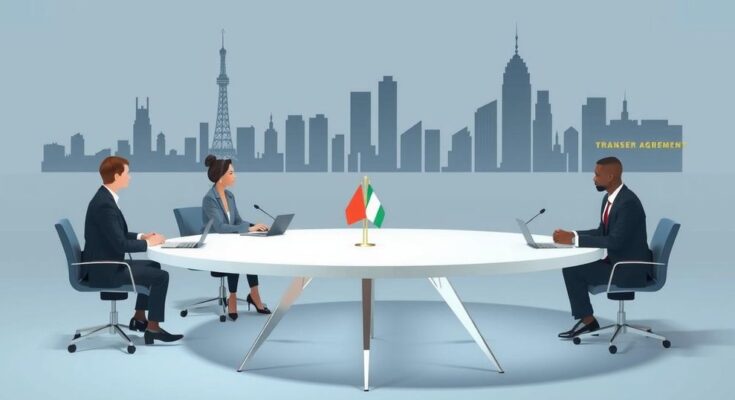South Korea and Ukraine recently discussed the repatriation of North Korean POWs held in Ukraine, recognizing them as South Korean citizens. South Korea’s Foreign Minister expressed readiness to accept their defection if they desire. This situation raises important questions about asylum and military collaborations involving North Korea and Russia.
On March 17, South Korea and Ukraine engaged in phone discussions regarding the repatriation of North Korean prisoners of war (POWs) currently held by Ukraine. The South Korean Foreign Ministry emphasized that these POWs are South Korean citizens according to local law.
During the conversation, South Korea’s Foreign Minister Cho Tae-yul communicated with his Ukrainian counterpart, Andrii Sybiha, about the situation involving two North Korean soldiers captured by Ukraine. Cho explained that the Constitution of South Korea recognizes the captured soldiers as citizens and indicated that their defection could be accepted should they express such intentions.
An interview conducted by South Korean publication Chosun Ilbo on February 19 revealed that one of the POWs, identified as a sniper-scout, requested asylum in South Korea during their discussions. This case highlights the complexities surrounding the status of North Korean prisoners in foreign territories, especially regarding their potential asylum claims.
The context of these discussions is further enhanced by recent reports indicating that more North Korean soldiers may be deployed to Russia, suggesting ongoing strategic military cooperation between North Korea and Russia amid the conflict in Ukraine. Furthermore, it has been noted that North Korea is providing a substantial portion of Russia’s military ammunition, which signals the multifaceted dimensions of international relations in this region.
In summary, the dialogues between South Korea and Ukraine reflect significant diplomatic efforts regarding the fate of North Korean POWs held in Ukraine. The recognition of these individuals as South Korean citizens underlines the complexities of national identity within international law. This scenario illustrates broader geopolitical dynamics, including North Korea’s military collaboration with Russia.
Original Source: euromaidanpress.com




